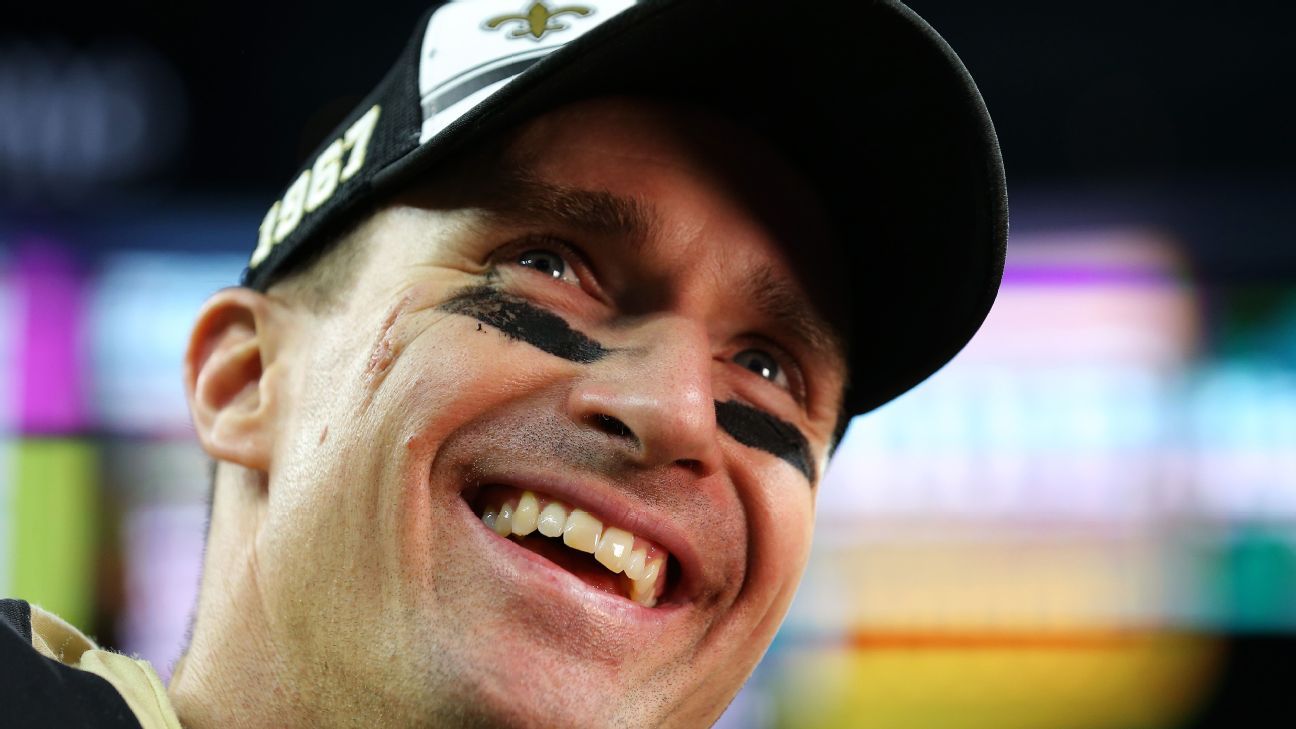
In a message addressed to President Donald Trump on Friday night, Drew Brees stood by his apology for earlier comments on "disrespecting the flag," after Trump wrote that the New Orleans Saints quarterback should not have changed his stance.
Brees was following up on his pledge to be an "ally" for the black community in the fight for racial equality and social justice.
"Through my ongoing conversations with friends, teammates, and leaders in the black community, I realize this is not an issue about the American flag. It has never been," Brees wrote on Instagram. "We can no longer use the flag to turn people away or distract them from the real issues that face our black communities.
"We did this back in 2017, and regretfully I brought it back with my comments this week. We must stop talking about the flag and shift our attention to the real issues of systemic racial injustice, economic oppression, police brutality, and judicial & prison reform. We are at a critical juncture in our nation's history! If not now, then when?
"We as a white community need to listen and learn from the pain and suffering of our black communities. We must acknowledge the problems, identify the solutions, and then put this into action. The black community cannot do it alone. This will require all of us."
Brees' statement came about six hours after Trump said Brees "should not have taken back his original stance on honoring our magnificent American Flag."
"OLD GLORY is to be revered, cherished, and flown high," Trump wrote in a pair of tweets. "We should be standing up straight and tall, ideally with a salute, or a hand on heart. There are other things you can protest, but not our Great American Flag - NO KNEELING!"
A number of Brees' teammates sent tweets of support following the quarterback's response.
A big part of leadership is admitting when you are wrong, and correcting your mistake. A model that All of America can follow, admit the wrong done to the black community, fix the issues and WE ALL move forward together. Let's all stand together now and find solutions. https://t.co/8RG3wMeiSd
— Demario Davis #56 (@demario__davis) June 6, 2020
My teammate dropped a bar... paraphrasing @demario__davis , "apology is a form of true leadership... that's taking ownership." Only through open dialogue & open hearts can we expand our comprehension and only in courage can we create positive change! ?? @drewbrees https://t.co/Z3GZJ0awwC
— cameron jordan (@camjordan94) June 6, 2020
MY QB ?? https://t.co/TOSprTpFHr
— Michael Thomas (@Cantguardmike) June 6, 2020
Safety Malcolm Jenkins also said in an Instagram story: "Drew, as much as your comments hurt me and many other people, I appreciate you for listening, because being heard is a big part of it."
Brees rekindled the issue earlier this week amid the national unrest over the death of George Floyd in Minneapolis, for which one police officer has been charged with second-degree murder. Three others have been charged with aiding and abetting second-degree murder.
Asked what he would think if players kneeled this season to protest the death of Floyd and others at the hands of police, Brees told Yahoo Finance: "I will never agree with anybody disrespecting the flag."
Brees' reference of the flag, rather than the death of Floyd or the anguish of black people around the country, drew heated backlash from dozens of players across multiple sports. He made two public apologies on social media Thursday and also apologized to teammates both privately and during an hourlong virtual team meeting, according to sources. Among other things, he wrote, "I recognize that I am part of the solution and can be a leader for the black community in this movement."
Some of Brees' teammates publicly embraced his apology, crediting him for admitting how badly he missed the mark and trying to learn from it. Even teammates who remained hurt and angered by Brees' comments expressed confidence that he will "do everything in his power to make things right."
His latest statement in defense of players' protests came on the heels of NFL commissioner Roger Goodell's message Friday in which he admitted that the league has erred in how it has dealt with players' feelings toward police brutality, social inequalities and systemic racism over the past few years.















 Phone: (800) 737. 6040
Phone: (800) 737. 6040 Fax: (800) 825 5558
Fax: (800) 825 5558 Website:
Website:  Email:
Email: 






